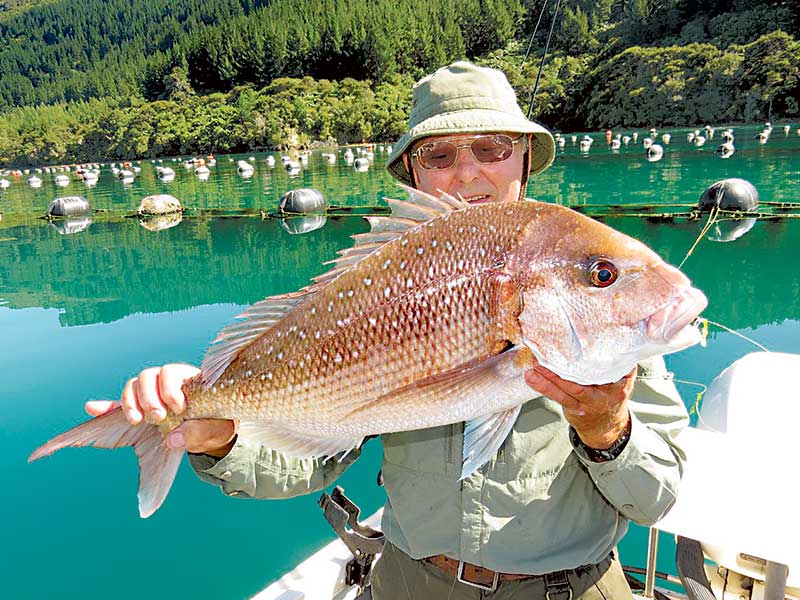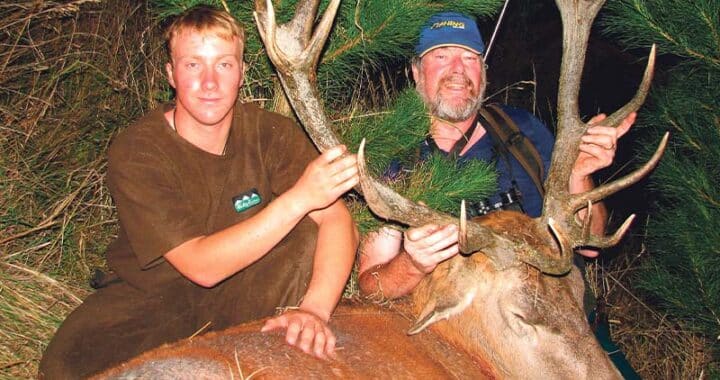The psychology behind fishing
3 min read
A good snapper from the Marlborough Sounds. Photo: Tony Orman.
Fishing is a sport. So is golf. And a lot of top golfers—Ben Hogan, Jack Nicklaus, Tiger Wood—have been avid anglers. They apply the right attitude, whether it is to fishing or golf because they know it is important to success.
The legendary great golfer Ben Hogan used to mentally rehearse shots before making it. He used to imagine the perfect shot—the swing, the follow-through—and would then step up and take the actual shot using what is termed ‘muscle memory’ to carry out the shot just as he had visualised it.
Golfers are known to be keen fishermen as well. I recall seeing a photo of Jack Nickalus holding a beautiful big rainbow trout from the Makarora River at the head of Lake Wanaka. He loved saltwater fly-fishing, too.
He was once quoted as saying, “I know a lot of people who love to golf and fish. I think there’s something about both sports that is similar. Maybe it is the patience, the frustration level, the quiet, the proximity to nature, or a combination of the above.”
Another great golfer, Sam Snead (1912–2002) once said, “The only reason I ever played golf in the first place was so I could afford to hunt and fish.”
Too often, in fishing, we attribute success to having the best gear. But the truth is a ‘prestigious name’ on a $1000 fly or soft-bait rod won’t guarantee immediate success because there is another element to the equation—you.
It is the same in golf—a good sportsman does not always need the latest technology. They could just as well have that one great shot with their grandparent’s golf clubs.

With that in mind, I think of an incredibly successful trout fly fisherman I know.
For many years, he used a fibreglass rod made by Kilwell, the New Zealand manufacturer in Rotorua. It was a blue rod and marketed as ‘The Robin Hood’.
He used this rod for many years, regularly catching 300 to 400 brown trout each summer by using the nymph, dry fly, or little wet fly fished across and down. He did not need a $1000 state-of-the-art rod. With his boy’s rod, he would catch big fish, too, and it was eventually a three kilo plus brownie combined with the Nelson region’s upper Buller River that broke the rod. Only then did my friend move to carbon graphite. It was not the rod. It was the angler.
It applies to sea fishing, too. I remember snapper fishing in the Pelorus Sound in Marlborough when for several hours, my friend—another good angler—and I fished with not one bite. Nothing stirred.
Mid-afternoon, he decided to move. Up came the anchor and we shifted to a spot on the outgoing tide. At almost 4pm, it was like throwing a switch to action. Suddenly, we were into the snapper.
All that was needed that day was an attitude of belief to continue fishing after several totally blank hours and patience to keep going.
Attitude is important. For instance, in many sports such as rugby or tennis, tactics are key. There’s one golden rule: “if you are winning, don’t change tactics”—and conversely, “if you are losing, change tactics.”
So if your method of fishing is not working, change your tactics. It may be changing your trout fly or spinner choice. Or perhaps a change in sea fishing to a different depth, a different spot, or a different bait or to soft-bait.
Attitude, belief, positive attitude—it is all part of the mental approach. There are lots of other mental applications. It is often said the successful 10 percent of anglers catch 90 percent of the fish.
A major reason is the 10 percenters have a number of qualities—belief, patience, willingness to learn from their own experience or others, flexibility, and the like. It is a subject that has got so many aspects to it and worth looking at again.



